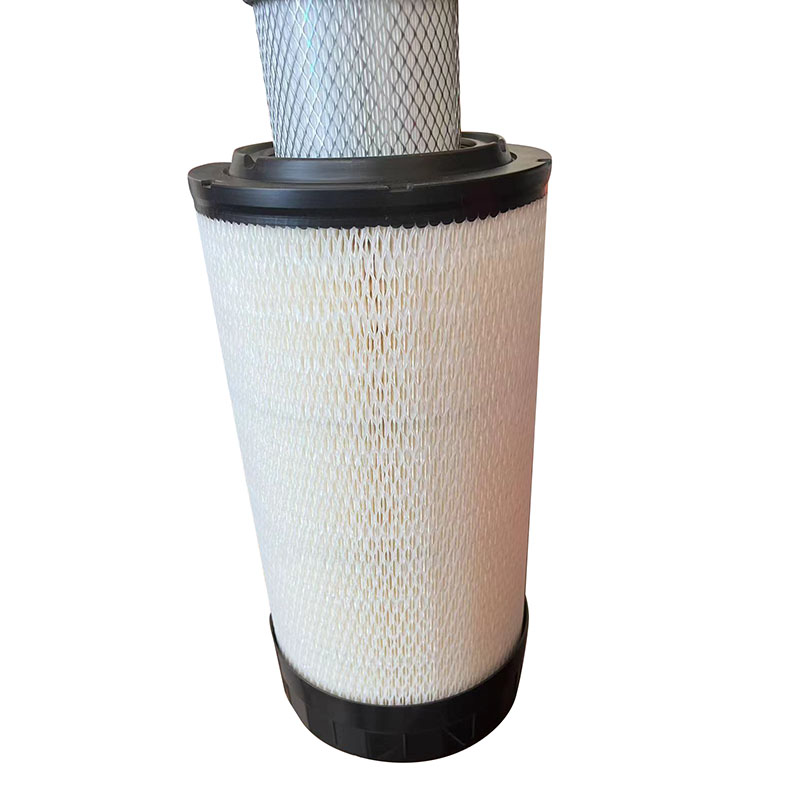

The core function of Heavy Truck Air Filters is to ensure the safe, efficient and long-term operation of the engine. The engine must inhale a large amount of air to work, but the air inevitably contains dust, sand, pollen and even finer hard particles.

If these impurities enter the engine directly without being intercepted, it will cause extremely serious harm.
1. Wear of key precision parts
For example, the surface of high-precision parts such as cylinder walls, piston rings, and turbocharger blades will be scratched or accelerated by hard particles, resulting in seal failure, power reduction, and abnormal increase in oil consumption.
2. Internal pollution and blockage
After dust accumulates in the intake pipe and intercooler, it will enter the exhaust aftertreatment system, reducing the system's working efficiency or causing blockage failure.
3. Reduced combustion efficiency
Excessive impurities will interfere with the mixing of fuel and air, resulting in incomplete combustion, which will reduce power output and increase fuel consumption.
Because of its harsh working conditions and high operating intensity, heavy trucks have much higher requirements for intake cleanliness than ordinary vehicles. Therefore, Heavy Truck Air Filters need to have the following key features.
1. High dust holding capacity
The filter element material and structural design can hold a large amount of dust without clogging too quickly, extending the maintenance cycle.
2. High efficiency filtration accuracy
The multi-layer filter medium can effectively block extremely fine particles.
3. Strong and durable structure
The shell and connecting parts are made of thick and corrosion-resistant materials, with good sealing performance, and can withstand relatively poor environments such as vibration.
4. Waterproof and moisture-proof
The special design can prevent rain or high-humidity air from directly impacting the filter element and causing failure.
Heavy Truck Air Filters are the core barrier of the engine intake system, and its core value lies in
Protecting the core components of the engine from abrasive wear and greatly extending the life of the engine.
Maintaining engine combustion efficiency, ensuring optimal power output and optimizing fuel economy.
Preventing other system failures caused by intake pollution, reducing overall maintenance costs and the risk of unexpected downtime.
Ensuring the continuous and reliable operation of the vehicle under harsh working conditions.
It is an indispensable key protective component for the healthy operation of the heavy truck power system.